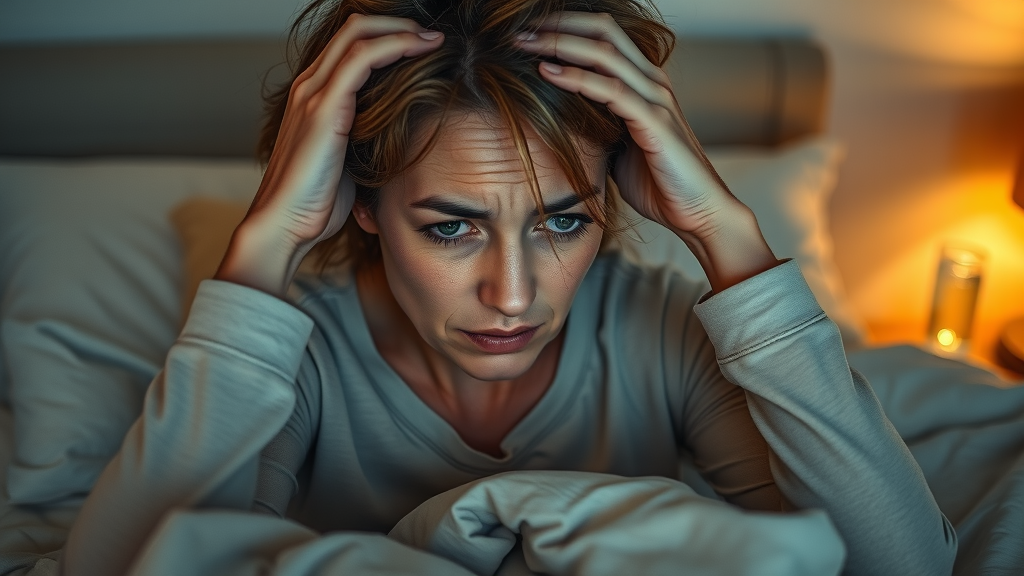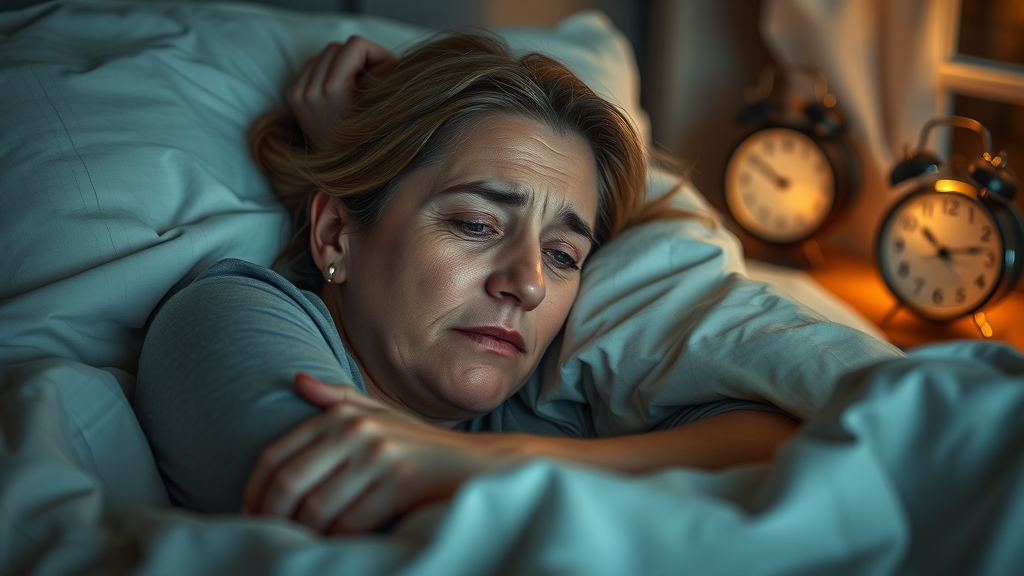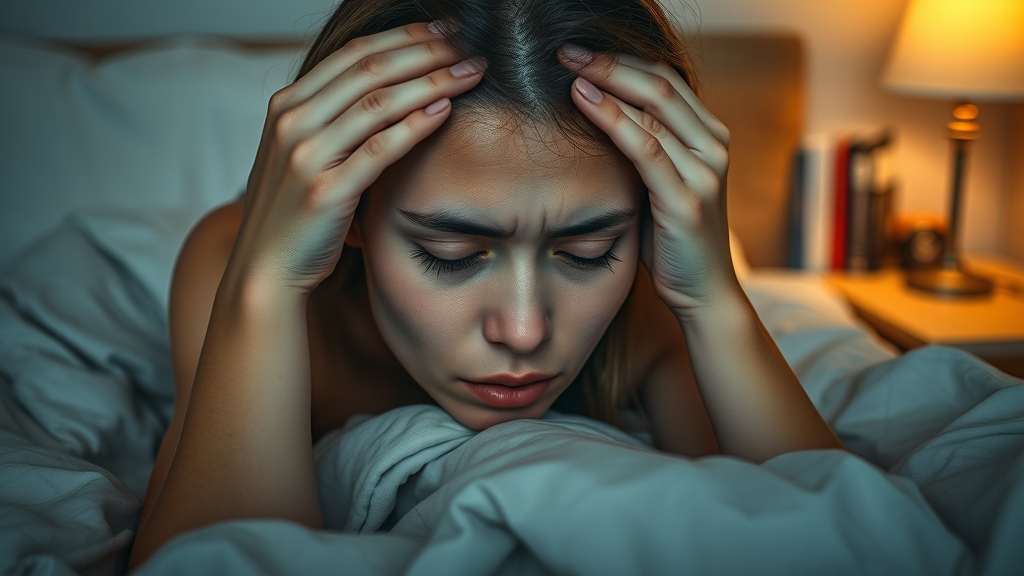Are sleepless nights leaving you exhausted and frustrated? You're not alone. Sleep disorders affect millions, disrupting lives and diminishing well-being. In "Struggling with Sleep Disorders? Find Your Path to Relief," we delve into the complexities of these conditions, offering you a roadmap to better sleep. By understanding the root causes and exploring effective strategies, you can reclaim your nights and enhance your overall health. Join us on this journey to discover how mastering your sleep can transform your life, one restful night at a time.
Understanding Sleep Disorders
What Are Sleep Disorders?
Sleep disorders are conditions that affect your ability to sleep well on a regular basis. They can disrupt your sleep patterns, leading to excessive daytime sleepiness, fatigue, and other health issues. Common sleep disorders include insomnia, sleep apnea, restless legs syndrome, and narcolepsy. Understanding these disorders is crucial for finding effective treatments and improving your overall sleep quality.
Common Types of Sleep Disorders
- Insomnia: Difficulty falling or staying asleep.
- Sleep Apnea: Breathing interruptions during sleep.
- Restless Legs Syndrome: An uncontrollable urge to move the legs.
- Narcolepsy: Excessive daytime sleepiness and sudden sleep attacks.
- Parasomnias: Abnormal behaviors during sleep, such as sleepwalking.
Signs and Symptoms of Sleep Disorders
Identifying the signs and symptoms of sleep disorders is essential for early intervention. Common symptoms include:
- Difficulty falling asleep or staying asleep.
- Excessive daytime sleepiness.
- Frequent snoring or gasping during sleep.
- Uncontrollable leg movements at night.
- Experiencing vivid dreams or sleepwalking.
What You'll Learn
In this article, you will learn about:
- The various types of sleep disorders and their symptoms.
- Causes of sleep disorders, including genetic and environmental factors.
- How to diagnose sleep disorders effectively.
- Effective treatments and lifestyle changes to improve sleep quality.
Causes of Sleep Disorders
Genetic Factors
Genetics can play a significant role in the development of sleep disorders. Family history of sleep issues may increase your risk of experiencing similar problems. Certain genetic mutations have been linked to conditions like narcolepsy and restless legs syndrome, highlighting the importance of understanding your family’s sleep health history.
Environmental Influences
Your environment can greatly impact your sleep quality. Factors such as noise, light, and temperature can disrupt your ability to fall asleep and stay asleep. Additionally, lifestyle choices, such as irregular sleep schedules and excessive screen time before bed, can contribute to sleep disorders.
Psychological Factors
Mental health conditions, such as anxiety and depression, are closely linked to sleep disorders. Stressful life events can also trigger or exacerbate sleep issues. Addressing these psychological factors through therapy or counseling can be an essential step in managing sleep disorders.
How to Diagnose Sleep Disorders
Consulting a Sleep Specialist
If you suspect you have a sleep disorder, consulting a sleep specialist is crucial. They can conduct a thorough evaluation, including a review of your medical history and sleep patterns, to determine the best course of action for diagnosis and treatment.
Sleep Studies and Tests
Sleep studies, or polysomnography, are often used to diagnose sleep disorders. These tests monitor various body functions during sleep, including brain activity, eye movement, heart rate, and breathing patterns. The results can help identify specific sleep disorders and guide treatment options.
Effective Treatments for Sleep Disorders
Cognitive Behavioral Therapy for Insomnia (CBT-I)
CBT-I is a structured program that helps individuals address the thoughts and behaviors that contribute to insomnia. This therapy has been shown to be effective in improving sleep quality and reducing insomnia symptoms without the need for medication.
Medications for Sleep Disorders
In some cases, medications may be prescribed to help manage sleep disorders. These can include sedatives, antidepressants, or specific sleep aids. However, it’s essential to use these medications under the guidance of a healthcare provider to avoid potential side effects and dependency.
Lifestyle Changes and Home Remedies
Making lifestyle changes can significantly improve sleep quality. Establishing a regular sleep schedule, creating a relaxing bedtime routine, and optimizing your sleep environment can all contribute to better sleep. Additionally, natural remedies such as melatonin supplements or herbal teas may help some individuals.
People Also Ask
What are the 5 sleep disorders?
The five common sleep disorders include insomnia, sleep apnea, restless legs syndrome, narcolepsy, and parasomnias.
How do I fix my sleep disorder?
Fixing a sleep disorder often involves a combination of lifestyle changes, therapy, and possibly medication. Consulting a sleep specialist can provide personalized recommendations.
What are the four signs you may have a sleep disorder?
Four signs of a sleep disorder include difficulty falling asleep, excessive daytime sleepiness, frequent snoring, and experiencing vivid dreams or sleepwalking.
Is a sleep disorder a mental illness?
While sleep disorders can be linked to mental health conditions, they are classified as medical conditions. However, addressing underlying mental health issues can be crucial for effective treatment.
Key Takeaways
Understanding sleep disorders is essential for improving your sleep quality. Here are the key takeaways:
- Sleep disorders can significantly impact your daily life and overall health.
- Identifying the type of sleep disorder is crucial for effective treatment.
- Consulting a sleep specialist can provide valuable insights and treatment options.
- Lifestyle changes and therapy can be effective in managing sleep disorders.
Conclusion
Sleep disorders are complex conditions that can affect anyone. By understanding the causes, symptoms, and treatment options available, you can take proactive steps towards better sleep. Remember, seeking help from a healthcare professional is vital in managing sleep disorders effectively. Reclaim your nights and enhance your well-being by prioritizing your sleep health.
FAQs
What lifestyle changes can help with sleep disorders?
Implementing a consistent sleep schedule, creating a calming bedtime routine, and reducing screen time before bed can help improve sleep quality.
Are there natural remedies for sleep disorders?
Yes, natural remedies such as melatonin supplements, herbal teas, and relaxation techniques can be beneficial for some individuals.
When should I see a doctor about my sleep issues?
If you experience persistent sleep problems that affect your daily life, it’s important to consult a healthcare provider for evaluation and treatment options.
Video Section
Understanding Sleep Disorders: A Comprehensive Guide
Watch our video to learn more about sleep disorders and how to manage them effectively.
For more insights on improving your sleep quality, check out our article on Unlock the Power of Sleep: Why Quality Matters Now and explore Unlock Your Best Sleep: Biohacking Techniques for Energy Boost for practical tips and techniques.








 Add Row
Add Row  Add Element
Add Element 



Write A Comment